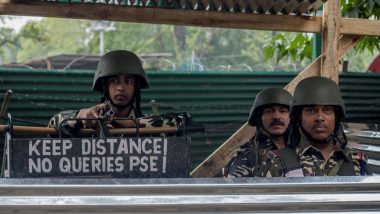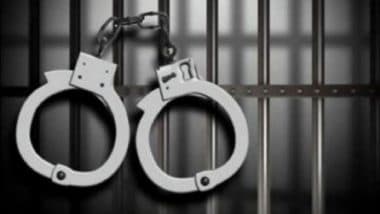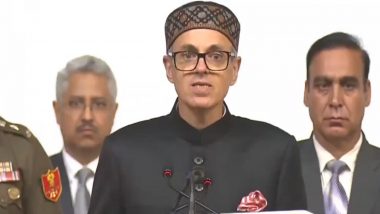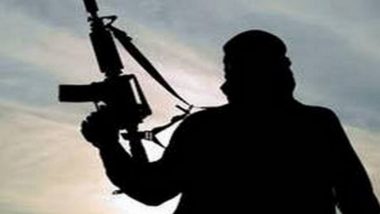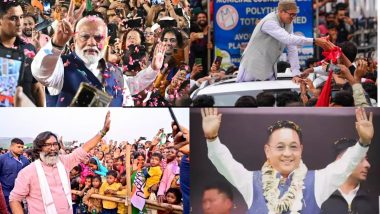Srinagar, August 20: Fulfilling a nearly seven-decade-old demand of Hindu nationalist groups seeking the revocation of Jammu & Kashmir's special status, the Indian government has finally abrogated Article 370. The law, which granted semi-autonomy to the state, was scrapped via a presidential order on August 5. Since then, the Kashmir Valley has remained under a lockdown with communication lines blocked and military curfew imposed.
A section of the intelligentsia, while opposing the manner in which Article 370 was abrogated, compared the move with the "rigged elections of 1987" and the arrest of J&K's first "Prime Minister" Sheikh Abdullah in 1953.
Among those who recalled the two startling incidents is Hyderabad lawmaker Asaduddin Owaisi, who told the Lower House of Indian Parliament that repealing Article 370 via a presidential order is the "third blunder" which New Delhi is committing in J&K.
The first, according to him, was the arrest of Sheikh Abdullah when his political appeal was at its peak in the Kashmir Valley. The second, he listed, was the rigging of 1987 assembly polls in J&K -- the only instance when the Muslim majority of the state had rushed out en masse to rally behind an anti-establishment coalition.
Owaisi's charge was reiterated by Shah Faesal, the 35-year-old IAS officer, who had quit bureaucracy last year to join mainstream politics in Kashmir. While appearing on BBC Hardtalk, Faesal alleged that the Centre's "unilateral" move has eliminated the mainstream from Kashmir.
Describing the August 5 decision as "daylight robbery", Faesal said that he belongs to the third generation of Kashmiris who have been "betrayed" by New Delhi. His father's generation, the ex-bureaucrat added, was subjected to the rigged elections of 1987, and the generation before him was stabbed by the arrest of Sheikh Abdullah.
'Sheikh Abdullah's Arrest' in 1953
In 1949, Abdullah delivered a historic speech at Srinagar's iconic Lal Chowk, explaining to the Valley residents why staying with a "democratic and secular" India was in the interest of Kashmir rather than siding with the "feudal" state of Pakistan. Barely four years later, the man who played the key role in stitching Kashmir's relation with India, had turned into New Delhi's arch-nemesis.
In 1953, when Abdullah's popularity was at its peak due to the communist-style land distribution measures that his nascent government had adopted, the then Centre headed by Pandit Jawaharlal Nehru decided to suspend his regime and lodge him behind the bars.
Abdullah's arrest, as announced by J&K's second Prime Minister Bakshi Ghulam Mohammad, was based on a series of evidence, including audio recordings and copies of letters, which showed that he was in touch with Pakistan and "planning J&K's annexure" to the neighbouring country.
In the Valley, there were few takers of New Delhi's claim as Abdullah, until his arrest, was seen as the tallest pro-India leader in J&K.
Abdullah, along with 22 others, was chargesheeted in the "Kashmir Conspiracy Case" and was to be tried under the Indian Penal Code (IPC) rather than the Ranbir Penal Code (RPC) which was applicable for criminal cases in J&K.
Charged with sedition and planning to wage war against the Indian Union, the IPC sections mandated life imprisonment or death for all the accused. However, shortly before the verdict was to be out in Abdullah's case in 1964, the Indian government had withdrawn the charges against the accused and released them.
The decision to withdraw the case remains marred with ambiguity. While analysts in New Delhi described it as a pacifist move by the Centre to restore normalcy in the Valley, those in Srinagar alleged a tacit deal between the Nehru government and the Abdullah family.
'Rigged Elections of 1987'
Nearly two decades after the Centre replaced J&K's Prime Minister post with that of Chief Minister, and replaced Sadr-e-Riyasat with Governor, J&K had appeared to have finally overcome the wounds of "losing their autonomy". The 1987 polls were set to witness the highest-ever participation, as there was a popular alternative to Farooq Abdullah-led National Conference.
The alternative coalition - Muslim United Front (MUF) - had, however, created flutters in New Delhi due to the pro-secessionist views of some of the parties which were constituents of the Islamist alliance.
The national and international media has acknowledged that the polls were rigged and Farooq Abdullah, a committed pro-India leader, was declared the winner.
This resulted in the disillusionment of several political stakeholders, including the then MUF chief ministerial candidate Syed Yusuf Shah, who went on to become a militant and launched the Hizbul Mujahideen. Now known as Syed Salahuddin, he continues to head the Kashmiri militant organisation.
Syed Ali Shah Geelani, the veteran separatist leader of Kashmir who opted for democratic means to lead the secessionist movement, also traces his disillusionment to the 1987 elections. Geelani, then a legislator in J&K assembly, decided to resign and turned into a separatist after the MUF was denied the chance to form a government.
The rigged elections, described as "second historic blunder" by Owaisi in his parliamentary speech, were also briefly referred to by Home Minister Amit Shah while accusing the erstwhile Congress governments of pushing Kashmir to the brink.
"Farcical elections were conducted by the earlier Congress governments in Kashmir. That sowed the seeds of mistrust. Till Morarji Desai and Atal Bihari Vajpayee's governments conducted the first free and fair elections in the Valley, all elections were jokes in the name of democracy," Shah had said in the Lok Sabha on June 29.
(The above story first appeared on LatestLY on Aug 20, 2019 01:56 PM IST. For more news and updates on politics, world, sports, entertainment and lifestyle, log on to our website latestly.com).








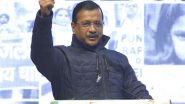




 Quickly
Quickly









